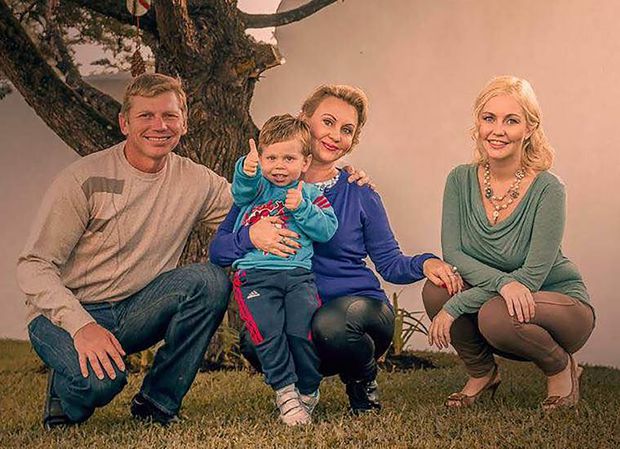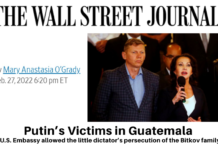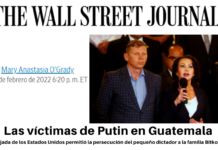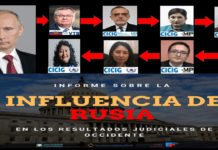
However, the Bitkov family, which has the support of anti-Putin campaigner Bill Browder, will not receive special treatment to get into Canada, the federal government said. Igor, Irina and Anastasia Bitkov will, like other asylum claimants, have to apply for refugee status with the United Nations Refugee Agency (UNHCR), before Canada can consider granting them asylum, a senior government official who was not authorized to speak publicly told The Globe and Mail.
Mr. Browder urged Ottawa to offer protection to the Bitkovs when they are released from prison.
The Bitkovs’ legal team will meet with the UNHCR on Friday, according to one of their Guatemalan lawyers Victoria Sandoval.
The Bitkovs were expected to be released from a Guatemalan prison Wednesday, but this was derailed after judge Ericka Aifan ordered a retrial. Ms. Aifan’s decision came after a dramatic four-hour delay of proceedings at the Guatemala City court, said Mr. Browder, who monitored the situation from London. Mr. Browder said Ms. Aifan blamed the delay on an audio malfunction in the courtroom before ordering the retrial, as Igor – Irina’s husband and Anastasia’s father – sat in a cage wearing handcuffs.
“The judge ordered a retrial after a higher court fully vindicated the family, which smacks of abuse,” Mr. Browder said. “It looks like there’s some undue pressure being put on the Guatemalan authorities from the Russians.”
Mr. Browder, a U.S.-born financier, has led an international campaign against the Kremlin; his former Russian lawyer Sergei Magnitsky was murdered in 2009 after accusing Russian officials of a massive tax fraud against Mr. Browder’s Russian hedge fund. He says the Bitkovs, like him, were victims of reiderstvo, which he describes as a standard practice in Russia where organized criminals work together with corrupt government officials to extract property and money from their victims.
The Bitkovs fled Russia after their pulp and paper business was allegedly forced into bankruptcy by Russian state banks in 2008. They eventually resettled in Guatemala in 2009, after paying a law firm $150,000 for Guatemalan citizenship. In 2012, Irina gave birth to a boy, Vladimir, who is currently in the custody of one of the family’s Guatemalan lawyers.
However, in 2015, the International Commission Against Impunity in Guatemala (CICIG), a United Nations agency created to fight corruption, opened a criminal case against the Bitkovs as a part of its investigation into human trafficking. Mr. Browder accused VTB – one of the Russian state banks that lent money to the Bitkovs – of persuading the CICIG to open the case. Igor was eventually sentenced to 19 years in prison, and Irina and Anastasia to 14 years.
Earlier this month, Guatemala’s Constitutional Court overturned the Bitkovs’ conviction of using forged documents to migrate to the Latin American country. But with a retrial ordered, the family will remain in Guatemalan prison until their next hearing on May 16.
In the meantime, the Bitkovs are still asking for Canada’s “immediate protection” if and when they are released.
“The most likely scenario if we stay in this country is that we might be expelled to the border and Russians will pick us up there,” said Anastasia, 27, in a five-page, hand-written letter from jail. “It would be the end of us.”
The Russian embassy in Ottawa did not comment on the Bitkovs’ plea for asylum in Canada.




